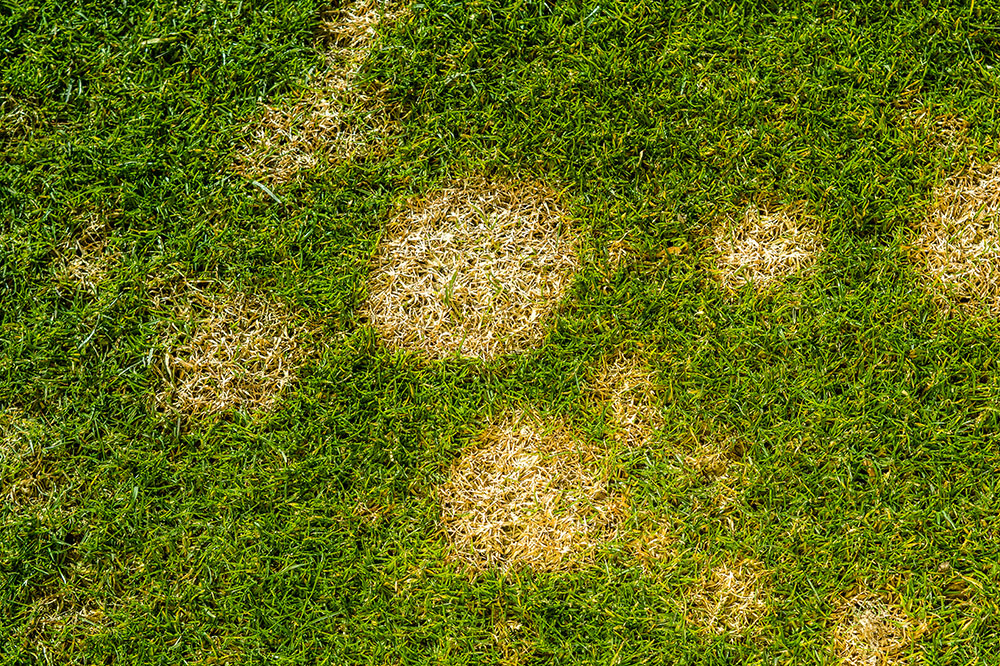Types and Benefits of Lawn Dressings Explained
Dressing a lawn refers to adding a top layer of organic materials to promote better, greener growth. Experts suggest using materials, including sand, compost, topsoil, and a blended mix of these to create a layer of soil. Adding this outer layer mostly promotes better growth, prevents weeds from spreading, and reduces the need for fertilizers. Properly top dressing your lawn can enhance its appearance and esthetics, ensuring a vibrant and healthy garden.
Types of top dressing for lawns
There are three main types of dressing and a blend of all three materials that you can consider for lawn care.

Sand
Lawns used for outdoor sporting events should be laid down with a top dressing of sand. Sand provides an excellent grip for gritty topsoil, on top of which fresh grass can be grown. Sand, also being coarser, can be used to level uneven ground, dilute the layer of thatch to improve aeration, and improve grass recovery by providing more cushion under the soil. It is also a better top-dressing option in locations that receive heavy rainfall owing to its porous texture to improve drainage.
Compost
Fine compost is one of the preferred dressings to improve the lawn’s appearance. Compost is suitable for most types of soil making it a very versatile product. Fresh compost maintains a steady pH level and hydration for plants and foliage to grow easily. It is rich in numerous supplements that support the growth of different types of vegetation depending on the terrain layout. In addition, a layer of organic compost can be easily spread over even ground to provide a solid base. Moreover, you don’t even have to buy compost. Processed kitchen waste can be used to create organic compost at home.
Topsoil
It’s better to use topsoil dressing for small lawns and backyards. Topsoil is an artificial layer that mimics the properties of natural soil laid over the sand, typically used to even out the ground and create a smooth contour. Where there are patches of washed-out soil and dips in the ground, a generous quantity of topsoil can be used to pack the place and prevent further erosion. Topsoil texture is also better for natural drainage as the layer allows water to seep deep into the ground and away from the roots. Topsoil also boasts a balanced pH level that is suitable for a new patch of grass.
Custom blended mix
You can also check out a commercial blended mix of sand, topsoil, and compost. You get the best of three components with the porous qualities of the sand, nutrition of the compost, and smooth finish of the topsoil to beautifully shape the garden or lawn. The ratio and proportion of dressing varies depending on the type of look you are trying to achieve.
Benefits of dressing a lawn
Topsoil dressing is more than just a remedy for improving lawn appearance. There are many benefits of using this technique with the aforementioned primary materials.
Improves soil aeration
The soil, over time, becomes compact and hard with repeated exposure to the weather elements. Compact soil is also not the ideal foundation for any grass or plant. So, adding a layer of nutrient-dense dressing helps aerate the soil and allows pockets of nutrition to penetrate, thus loosening the texture. More oxygen and water can penetrate the layer providing nourishment to the roots.
Dressing adds nutrition
Top dressing improves the nitrogen, potassium, and oxygen content in the soil. The higher the capacity of soil to hold on to these compounds, the better this layer of soil will retain water and nutrients. Dressing the soil improves the quality for better growth and vegetation.
Improves microbial content
Soil contains billions of microorganisms that burrow deep into the layer to help break down organic materials in the compost. This reaction releases more nitrogen that plants and green vegetation require to grow and sustain life.
Improves drainage
Water logging is one of the main reasons why vegetation gets destroyed. Too much water loosens the soil particles and causes the runoff to disintegrate at the base of the roots. Without a proper foundation, fresh grass and plant blooms get eroded. Adding a layer of dressing helps shape and level the soil so there is no risk of water logging.
Reduced need for using fertilizer
Blended mixes contain natural and organic nutrients that help improve soil quality for supporting vegetation growth. So, you don’t have to add too much fertilizer, as the dressing layer will supplement all necessary nutrients. The additional layer of compost will further supplement the nutrition necessary to maintain a good, visibly appealing lawn.
Top dressing a lawn is quite a labor-intensive process. While you can DIY smaller lawn or garden patches, hiring professionals once every few months to overhaul the entire patch is better. Alternatively, you can rent out motorized tools and spreaders to equally distribute the dressing over large soil patches. It is also advisable to treat bare patches before adding a complete layer. Remember, each layer of top dressing raises the garden patch, so you must avoid repeating the process unnecessarily.